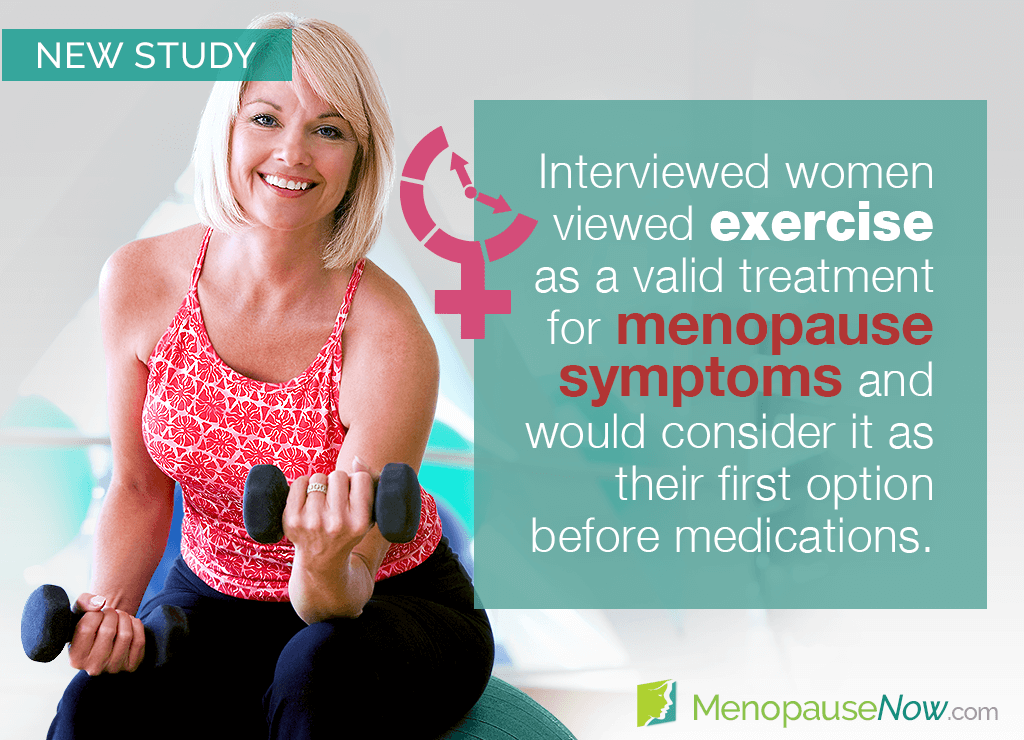While it has been shown that being active during menopause reduces the risk of heart disease, obesity, depression, and osteoporosis, data on its effects on vasomotor symptoms is lacking.1,2
Interestingly, how women feel about exercising in terms of managing symptoms has also not been studied yet. With this in mind, British researchers aimed to explore women's views of physical activity as a treatment for menopause symptoms.
Study Design
This qualitative study was part of the Active Women Study, a clinical trial investigating the effectiveness of exercise on relieving vasomotor symptoms, like hot flashes and night sweats. It took place in West Midlands, England.
There were 261 women (aged 48 to 57) participating in this study. They were split into three groups (two intervention groups and one control group) and were given their regimens to follow for six months.
- Both intervention groups received two one-on-one consultations with an exercise facilitator in addition to either supporting materials or access to the support group. They were encouraged to exercise three to five times per week.
- The control group received usual menopause care, without a physical activity regimen.
After six months, 17 women from all three groups participated in interviews regarding their perception and experiences of the intervention they had just completed.
Study Findings
Here is the summary of the results of interviews with the participants, grouped by researchers' points of interest:
Women's initial thoughts about the intervention
Women reported that the idea of using exercise to relieve their symptoms was appealing to them. Their previous trials with natural remedies for hot flashes were unsuccessful, and they were willing to try anything to feel better without having to use hormone replacement therapy (HRT).
Women's experiences after completing the intervention
Most interviewed women felt that physical activity reduced the number and intensity of hot flashes and night sweats. The majority noticed a gradual improvement, with one participant reporting positive changes immediately. A few women stated that their symptoms returned when they stopped exercising.
Women also shared that staying physically active improved their self-esteem, mood, energy levels, and stress levels, overall helping them gain a more positive outlook on life.
Women's perceived changes to health attributed to exercise
Most women reported feeling empowered by newly acquired knowledge through one-on-one consultations, educational materials, and support group meetings. Those with access to the support groups also said that the intervention made them more able and confident to cope with their symptoms.
Women's views on using exercise to treat menopause symptoms
Viewing exercise as a valid treatment for menopause symptoms, women expressed a desire to receive more encouragement and emotional support from their healthcare professionals to include exercise as the first treatment option, before being offered medications.
What Does It Mean?
This study is important for a variety of reasons. Individual perception of a regimen or treatment can play a huge role in one's compliance and final outcomes. As such, maintaining a positive attitude towards exercise during menopause can encourage women to stick to the program and give themselves a chance to see improvements and improve their health.
It was also shown in this trial that having a strong support network of women going through similar menopause struggles has helped the participants deal with their own more confidently. With numerous support groups available in local communities or online, this is an easy, natural approach that can be implemented right away.
The results of this study also demonstrate the need for leading physicians to put more focus on providing menopause education to their patients. Given tailored information and encouragement, women can explore natural treatment options feeling safe and supported.
Sources
BMC. (2020). Women's views about physical activity as a treatment for vasomotor menopausal symptoms: a qualitative study. Retrieved October 6, 2020 from https://link.springer.com/article/10.1186/s12905-020-01063-w
Footnotes:
- Maturitas. (2014). To exercise, or, not to exercise, during menopause and beyond. Retrieved October 6, 2020 from https://www.sciencedirect.com/science/article/abs/pii/S0378512214000255
- Behavioural Medicine. (2005). Exercise and well-being: a review of mental and physical health benefits associated with physical activity. Retrieved October 6, 2020 from https://journals.lww.com/co-psychiatry/Abstract/2005/03000/Exercise_and_well_being__a_review_of_mental_and.13.aspx

